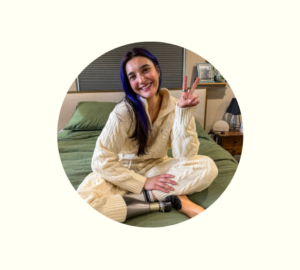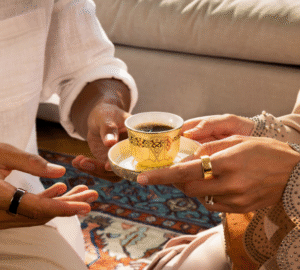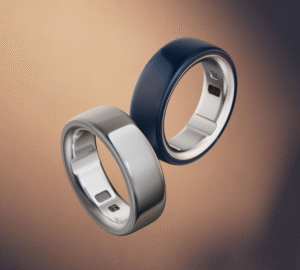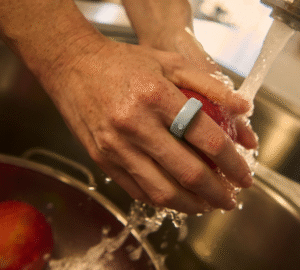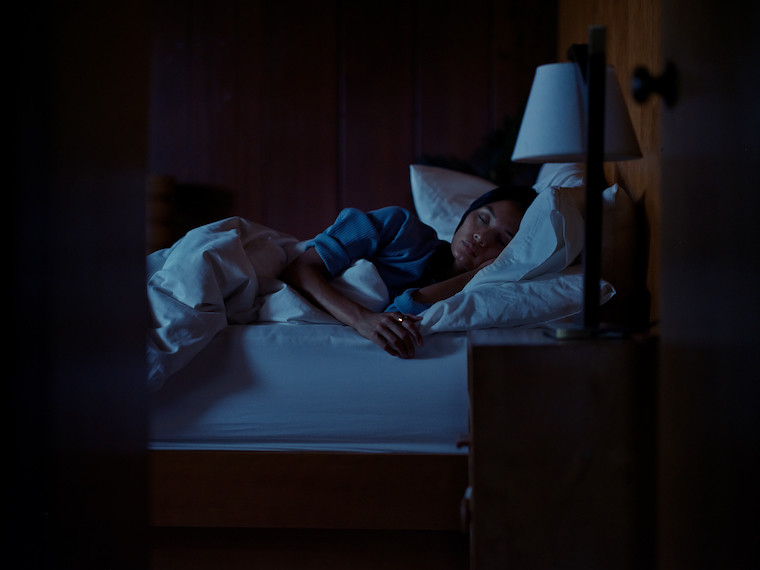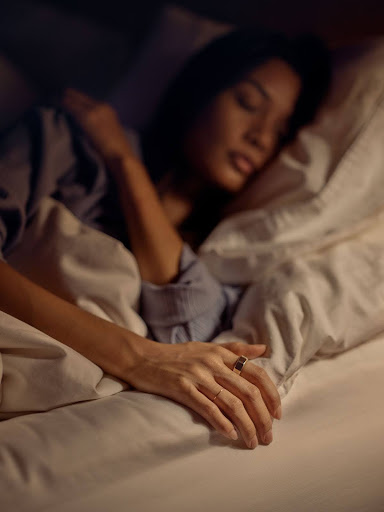If you find yourself asking, “how can I get more deep sleep” — you’ve come to the right place. We asked Oura members what has helped them.
Deep sleep, also called slow-wave sleep, is the most rejuvenating stage of sleep. During this stage, your body gets to work repairing and restoring many systems, from your brain to your muscles.
Over the course of the night, Oura tracks your sleep cycles using our highly accurate sleep staging algorithm. In the morning, you can see how much time you were in deep sleep and how it compares to your normal.
How Much Deep Sleep Do You Need?
Ideally, adults should spend about 13 to 23% of their time asleep (or about one to two hours) in deep sleep. If you’re not getting enough deep sleep, you’re more likely to experience side effects like irritability, fatigue, trouble concentrating, and even increased cravings for high-calorie foods.
However, getting an adequate amount of deep sleep isn’t always as easy as closing your eyes and hoping for the best. In fact, it can be difficult to get enough deep sleep if you’re not following best practices for sleep hygiene and other general healthy habits.
To learn what’s helped Oura members improve their deep sleep stats, we posed the question to the Oura community: What behaviors or habits have helped you increase your deep sleep?
Below, find the top responses on how to increase deep sleep, plus science-backed reasons why their hints could work for you, too.
READ MORE: 5 Ways to Upgrade Your Sleep Hygiene
How Get More Deep Sleep, According to Oura Members
1. Take time to wind down before bed.
“Having dedicated time to wind down – like a bath or reading fiction before bed.”
“Being mindful of what time I’m going to bed – and winding down without my phone!”
“Listening to audio sessions in the Oura App. It puts me to sleep quickly and if I wake up at 3am, it helps me get back to sleep.”
Why it works: Many of us have busy lives: long hours at work, followed by evening tasks like childcare, workout classes, and social gatherings. The result is that we find ourselves trying to go to sleep in an activated state. This can cause circadian rhythm dysregulation, in which melatonin is suppressed, amongst other things.
Instead, aim to spend an hour or so winding down from your day to signify to your body that it’s time for sleep. This can regulate your natural body clock, so that the biochemical changes that occur for sleep happen when they should.
READ MORE: 10 Simple Breathing Exercises for Sleep and Relaxation
2. Experiment with heat or cold exposure.
“Cold bath after exercising in the evening!”
“Drastically reducing the temperature in my house at night.”
“Sauna.”
Why it works: Using a sauna before bed increases blood flow as your core body temperature rises. Afterward, your body cools, triggering a release of melatonin and human growth hormone—two important sleep hormones.
Lowering your body temperature before bed is also vital for sleep architecture. Studies have found that a hot bedroom is associated with less deep sleep and REM sleep.
Some Oura members shared that cold water immersion helped to increase their deep sleep. While this isn’t unanimously supported by the current body of research, some studies have indicated that it can increase sleep quality in certain cases — for instance, after exercise, it can help accelerate the body’s healing process.
However, as cold water immersion can activate the sympathetic nervous system, it can have the opposite effect for some people—energizing them, rather than stimulating sleepiness.
A less intense way to intentionally decrease your body temperature involves lowering the temperature in your bedroom. This facilitates the drop in your body temperature, triggering melatonin and helping you reach deeper stages of sleep more quickly.
LEARN MORE: Sauna & Sleep: A Winning Combo?
3. Align with your natural body clock.
“Following Oura’s suggested time to hit the hay – and being consistent!”
“Going to bed at a set time every night, and waking at the same time.”
“Listening to my suggested bedtime to keep me in line with my chronotype!”
Why it works: Your chronotype indicates whether you’re naturally a morning or evening person. There are six chronotypes classified in the Oura App ranging from early morning type to late evening type. Why is this important for deep sleep? Understanding when your body’s natural inclination for sleep can help you sleep better overall, and improve the amount of deep sleep you get.
| Member Tip: After 90 days, Oura members can find out their personal chronotype, as well as educational information about how you can optimize your sleep patterns. |
4. Avoid alcohol.
“No alcohol. Alcohol really messes with your sleep. Even one glass!”
“Not drinking alcohol and realizing the massive impact it had on my sleep.”
“Drinking alcohol reduces deep sleep pretty reliably for me.”
Why it works: Alcohol disrupts your sleep architecture—how you move through the different sleep stages at night. This can cause an imbalance between deep sleep and REM sleep, leaving you feeling tired in the morning regardless of your total sleep.
LEARN MORE: How Alcohol Impacts Your Sleep
5. Eat dinner earlier.
“Stop eating at least 4 hours before bedtime.”
“Eating at least 3 hours earlier and putting my phone on Do Not Disturb.”
“Not eating (especially sugary foods) two hours before I go to sleep!”
Why it works: It can be tempting to have a midnight snack, but if you care about deep sleep – it’s best not to! Late-night eating puts your metabolism to work, preventing the natural reduction in your body temperature that helps you move into a deep sleep. It also affects hormone release, specifically melatonin.
A 2020 study found that when participants ate within three hours of bedtime, they woke up more during the night, experiencing more disrupted, low-quality sleep.
LEARN MORE: How Late-Night Eating Can Impact Your Sleep
6. Consider sleep-promoting herbs or supplements.
“Valerian root 30 minutes before sleep, and not eating or exercising two hours before bed.”
“Magnesium before bed.”
“Drinking calming tea before bed!”
Why it works: Certain herbs and supplements, such as melatonin and l-theanine, can be used to help you get more deep sleep. For example, valerian root can help you fall asleep faster if you struggle with sleep latency, while ashwagandha may help combat stress and anxiety that’s at the root of your poor sleep.
Note that all of these sleep aids work differently, addressing different issues, so there isn’t a one-size-fits-all solution, and you should always check with your doctor before adding a new herb or supplement to your routine.
LEARN MORE: 9 Science-Backed Herbs and Supplements for Better Sleep
7. Be mindful of your evening food choices.
“I’ve noticed that it doesn’t matter what you eat as much as the quantity. I try to avoid everything. I also try to reduce fluid intake as much as possible to avoid bathroom breaks. Even if I have a small snack, my restfulness metric plummets.”
“Paying attention to coffee and caffeine dosage and timing: no caffeine after 11am, limit to one cup per day, and I moved up my dinner window to 6.15pm.”
“No caffeine 8 hours before sleep. No alcohol 6 hours before sleep. No food 4 hours before sleep.”
Why it works: Even if you’re leaving enough time between your last meal and your bedtime, you still want to be mindful of what you eat. High-carb meals, caffeine, sugar, acidic, or spicy foods all impact deep sleep, and your sleep quality overall.
LEARN MORE: The Impact of Caffeine on Sleep
8. Consider alternative therapies.
“Breathwork prior to bed.”
“Craniosacral Fascia Therapy (CFT), yoga nidra, acupuncture, yin yoga.”
“Red light therapy, meditation, or Wim Hof breathing before sleep. Hardcore workouts, and magnesium (little by little).”
How it works: To enhance the amount of deep sleep you’re getting, you can experiment with alternative therapies like breathwork, mouth taping, red light therapy, meditation, and yoga nidra.
Each therapy works differently to increase deep sleep – some have been supported in research, whereas others are emerging therapies that have yet to be studied. However, as with all of these tips – if it works for you, it’s worth continuing!
READ MORE: Got a Theory? Test it Out
How to Get Better Deep Sleep with Oura
Deep sleep, the most rejuvenating stage of sleep, is essential for feeling your best. A lack of deep sleep is associated with irritability, daytime fatigue, cognitive impairment, and appetite changes.
With Oura, you’ll receive a daily Sleep Score each morning, which shows how much deep sleep you got each morning. Using other in-app features like Tags and Trends, you’ll begin to learn correlations between your daily habits and your sleep — giving you a better sense of what habits work, and which ones don’t.
RELATED: REM Sleep: What Is It and How to Get More







